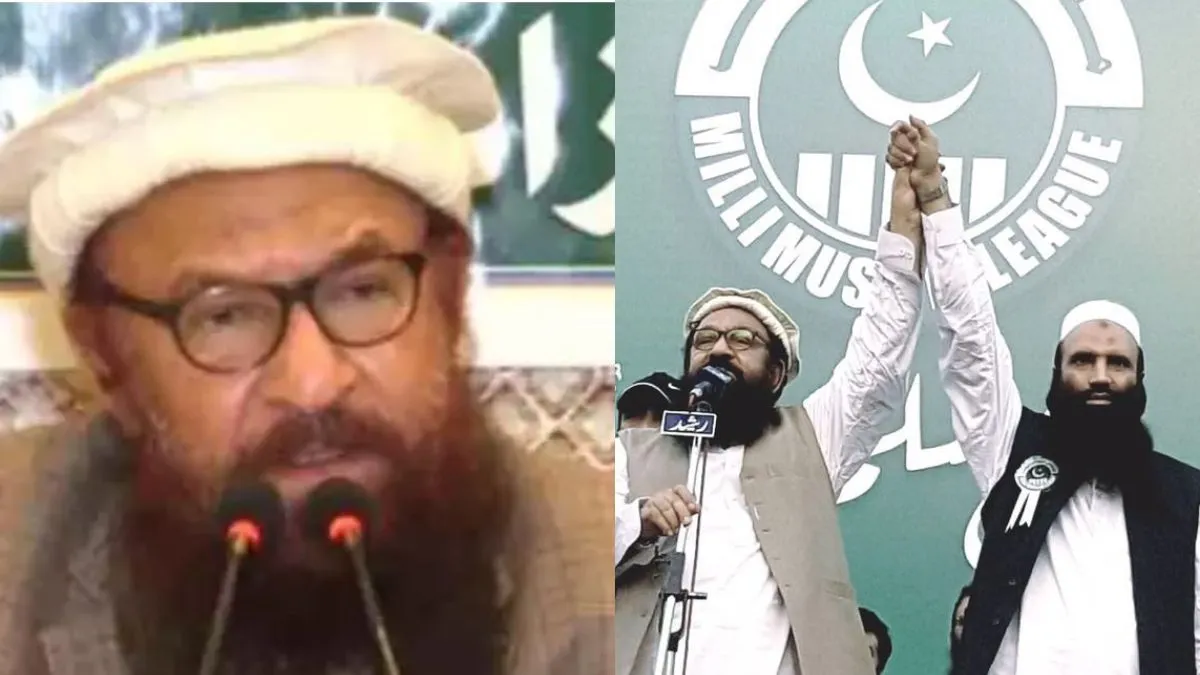- By Shivangi Sharma
- Fri, 27 Dec 2024 05:48 PM (IST)
- Source:JND
Abdul Rehman Makki, a senior leader of the Lashkar-e-Taiba (LeT), the terrorist group responsible for the 26/11 Mumbai attacks, has reportedly died in Pakistan. His death marks the end of a significant chapter in the world of global terrorism, given his role in orchestrating some of the most heinous attacks against India.
He was known for his pivotal role in the planning and execution of the 2008 Mumbai attacks, a series of coordinated attacks that targeted key locations in Mumbai, resulting in the deaths of 166 people and injuries to hundreds more.
In addition to being involved in the Mumbai attacks, Abdul Rehman Makki was also implicated in numerous other terrorist activities, including attacks on Indian security forces and civilians.
Makki, a senior Lashkar-e-Taiba leader, was arrested by the Pakistani government on May 15, 2019, and placed under house arrest in Lahore. In 2020, a Pakistani court convicted him of terrorism financing and sentenced him to prison. He had been ill recently and was receiving treatment for high sugar levels in Lahore before his death.
The 26/11 Mumbai Attacks
The 26/11 Mumbai attacks are one of the deadliest terror attacks in India's history, and Makki’s role in the attack was significant. While the attack was carried out by a group of ten gunmen, it is believed that Makki, along with other LeT operatives, played a crucial role in planning and executing the operation. The terrorists arrived by sea, hijacking an Indian fishing trawler, and carried out simultaneous attacks at multiple locations in Mumbai, including the Taj Mahal Palace Hotel, Oberoi Trident Hotel, Nariman House, and CST Railway Station.
Makki’s involvement in the attacks was confirmed through evidence, intelligence reports, and his association with Zaki-ur-Rehman Lakhvi, another key LeT commander, who was arrested and later released by Pakistan despite being implicated in the attacks.
ALSO READ: His Life Was Reflection Of Honesty And Simplicity': PM Modi Hails Manmohan Singh, Pays Tribute
Makki's Role in Lashkar-e-Taiba’s Operations
Makki was the cousin and brother-in-law of Hafiz Muhammad Saeed. He taught at the Islamic University of Madinah in Saudi Arabia and, in 2004, published a book arguing that fedayeen operations should not be classified as suicide attacks.
Apart from his direct involvement in attacks, Abdul Rehman Makki was considered one of the key ideological figures within Lashkar-e-Taiba. He served as the deputy to Hafiz Saeed, the group's founder and mastermind behind numerous attacks against India, and was also involved in recruitment and radicalisation efforts across Pakistan and other parts of South Asia.
Due to his significant role in terrorism, Abdul Rehman Makki was designated as a global terrorist by both the United Nations and the United States. He was also one of the most wanted terrorists by Indian authorities, with Interpol issuing a Red Corner Notice against him.
Makki is believed to have had connections with the Taliban's supreme commander Mullah Omar and al-Qaeda's Ayman al-Zawahiri. He was known for his anti-India speeches in Pakistan. In 2017, his son, Owaid Rehman Makki, was killed during an operation by Indian security forces in Jammu and Kashmir.
